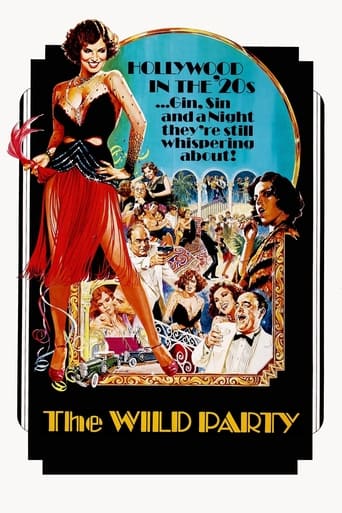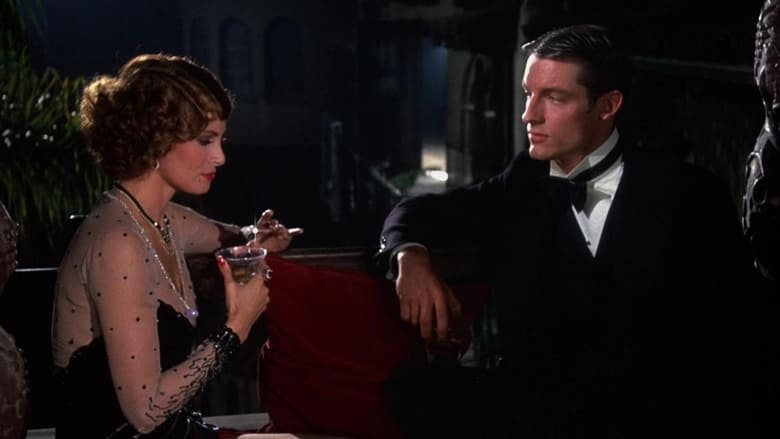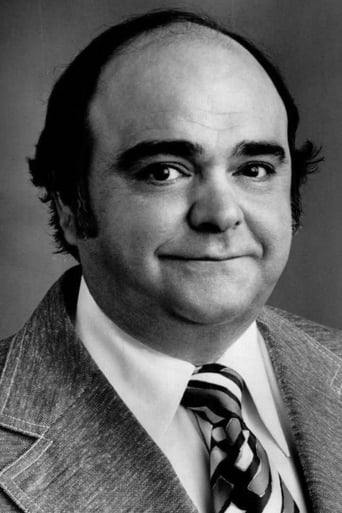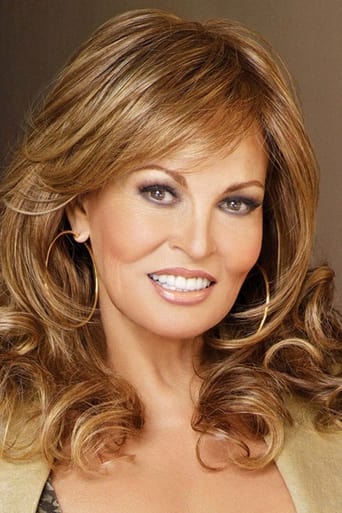

The Wild Party (1975)
An aging silent movie comic star throws a lavish party to try and save his failing career.
Watch Trailer
Cast


Reviews
Pretty Good
Although I seem to have had higher expectations than I thought, the movie is super entertaining.
I enjoyed watching this film and would recommend other to give it a try , (as I am) but this movie, although enjoyable to watch due to the better than average acting fails to add anything new to its storyline that is all too familiar to these types of movies.
The story, direction, characters, and writing/dialogue is akin to taking a tranquilizer shot to the neck, but everything else was so well done.
The worst Ivory-Merchant film I've seen is THE WILD PARTY, very loosely based on the Roscoe Arbuckle scandal. More specifically it's based on a hideously maudlin poem by Joseph Moncure March published in 1928. The Ivory-Merchant team so famous for its impeccable period detail in any number of films totally flops in capturing the 1929 Holly glam look. What they did capture is the 1975 look. James Coco stars as Jolly Grimm, a washed up silent film comic hoping for a comeback in his latest and self-backed film on the life of Brother Juniper. His live-in girlfriend and former extra is played by Raquel Welch. She gets to sing and dance to one of the film's many horrid songs. Perry King plays a flashy new film star, Tiffany Bolling plays his jaded party date, Bobo Lewis plays the maid, Royal Dano plays Tex the former stuntman, David Dukes plays the guy who writes the poem. The majority of the cast is unrecognizable. The story hits of just about every stereotype. There's the Valentino type, a vamp who's really a lesbian, studio heads with thick Euro accents, and worst of all is the little puke who'll do anything to get into the movies so she crashes the party and does an Isadora dance draped in dish towels.Everything is wrong although there could have been a decent movie with James Coco and none of the rest of the cast. The costumes are all wrong as is the women's hair and makeup. The several songs are the type that Paul Williams used to sing with that gag-worthy diction of his. There are also lots of clips of Coco playing Brother Juniper in the silent movie. As the cannibals trap him and lead him to the giant cauldron, Juniper says..... "You can't boil me. I'm a friar!" And that's the high point of the film.
(Very) loosely based on the Fatty Arbuckle scandal from circa 1921, this film is set in 1929, and based on a poem from that era, which I have not read, a few lines of which are voiced over in the film. James Coco's character was very annoying. This is not really criticism, because that was obviously intentional. Perry King played his part as melodramatically as a scene from the times. Royal Dano was excellent as befits his long and distinguished career as a character actor.It has been a long time since I have seen a film with Raquel Welch. She was long mocked back in the day (before silicone) as just a big pair of boobs, but I found her performance compelling, and the best part of this movie.
The famous poem of the 1920s becomes an ambitious meeting of American International and Merchant-Ivory, who sink into a most un-Merchant-Ivory-like Hollywood orgy in this tale suggested by, but not actually dramatizing, the Fatty Arbuckle scandal that ruined his career. With a screenplay and songs by Broadway songwriter Walter Marks, it seems to lick its lips at all prospects for lasciviousness, reveling in the bare breasts and spent drunken bodies the morning after. The songs are OK, and James Coco's excellent, carefully indicating the conflicting warmth, selfishness, and desperation in Jolly Grimm. But Raquel Welch feels anachronistic, not convincingly of the Twenties, and her singing and dancing are at best proficient. It's a messy movie, the plot threads not really hanging together, and the trendy camera-work belongs to 1975 and 1975 only. Let's call it an interesting failure.
Loosely based on the 1920's film star Fatty Arbuckle scandal (in which he was tried, but acquitted of raping a young girl during a Hollywood party, resulting in the demise of his career), this is adapted from a narrative poem that has some similarities to Arbuckle, but notable differences as well. Dukes plays a writer who narrates the story from his hospital bed. He recounts the difficulty that his associate, silent film comedian Coco, has had in holding onto a career in the cinema business. Coco hasn't had a film released in five years and is throwing a huge bash in order to show his latest opus to various studio heads in the hopes that they will distribute it for him. Unfortunately for him, it's the dawn of sound and his film is silent. His live-in lover Welch is a grateful and loyal, but restless, sexpot who he mistreats regularly (and increasingly, as his career dwindles.) Together, Coco and Welch host this bash and soon find that the studio heads are more interested in other parties or in hooking up with loose women on the premises. King plays a hot new actor who's brought to the party by starlet Bolling, who is one of Welch's best friends. Once he eyes Welch, King can think of virtually nothing else the rest of the night. Meanwhile, Ferra, a teenage girl, has come to show Coco her talent in dancing, never dreaming of all the angst and drama unfolding in the house. Eventually, the party escalates into a near full-on orgy and the divergent personalities clash, ending in violence. Coco gives an extremely strong performance in one of his better roles. His desperation is palpable and he gets to show both his comic and dramatic skills through the framework of the film. Welch is attractive, but very plastic and anachronistic. She never seems genuine at any point in the film. Her character is supposed to be acting like a content and secure hostess, but Welch carries this facade throughout the entire film with only occasional lapses into realism. She also performs a couple of sexy, but largely inappropriate dance numbers. King provides a welcome does of male sex appeal. His angular features are a perfect contrast to the rotund Coco and he shows off his enticing physique in one key scene. Dukes, Bolling and Dano (as Coco's long-time chauffeur) do well in their respective roles as well. The biggest problem with the film is that nothing wild happens until it is almost over! The period costuming and decor are interesting and there are some good moments along the way, but the high-flying, wildness is not in evidence at all until over an hour into it. Then, when the debauchery starts, it is pretty tame all things considered (certainly compared to the REAL parties of 1920's and 1930's Hollywood!) Those familiar with the Arbuckle case may be expecting the story to take a different turn than it does. It's actually a pleasant surprise when things don't go exactly as one might be anticipating, but the major catalyst for the violence at the end isn't even shown! (A particular lovers tryst is only alluded to.) A whimsical score (with some clever songs), good acting by Coco and the attractiveness of Welch and King are the primary assets here. It's not bad, but it could have been much better.




